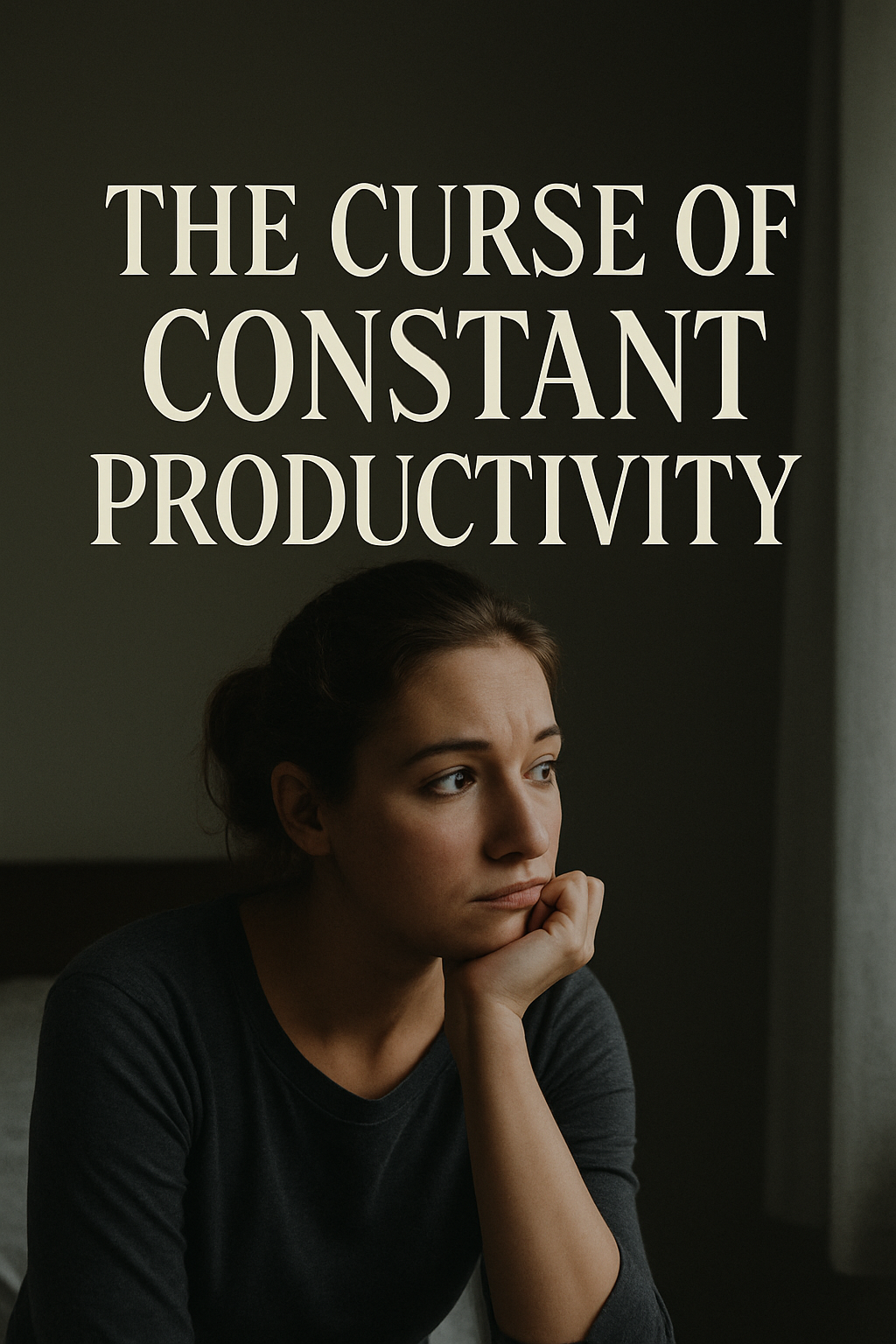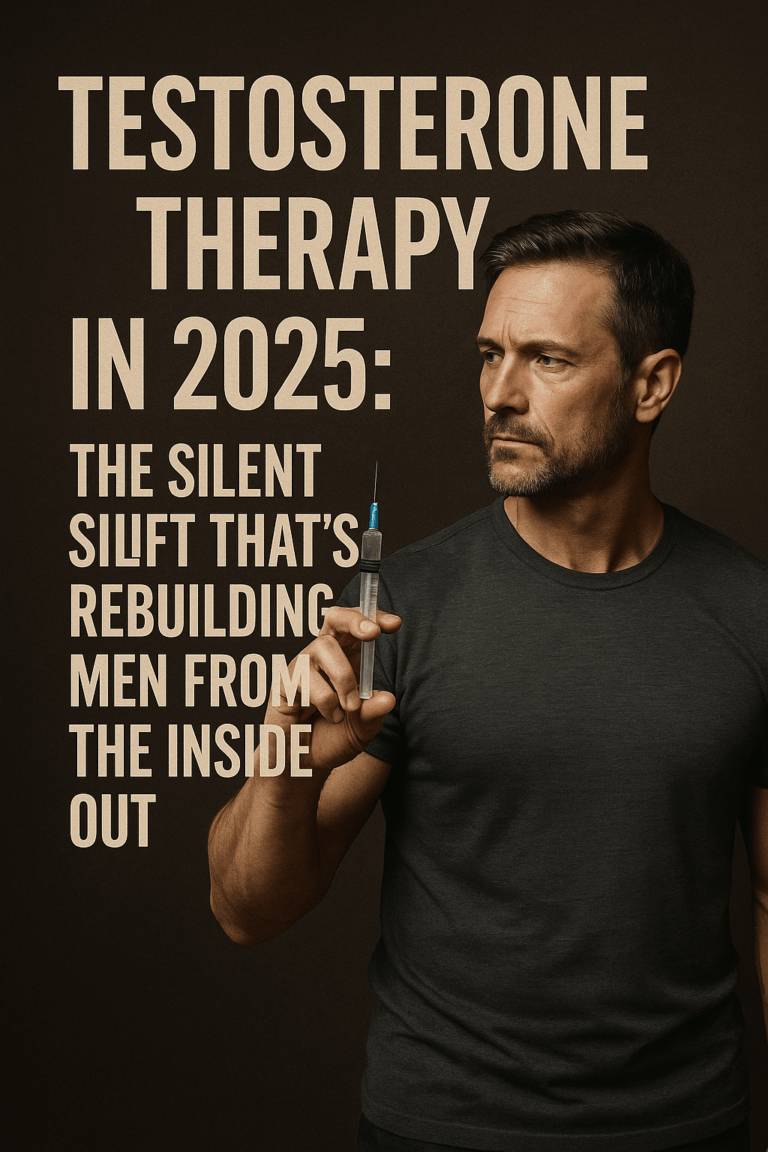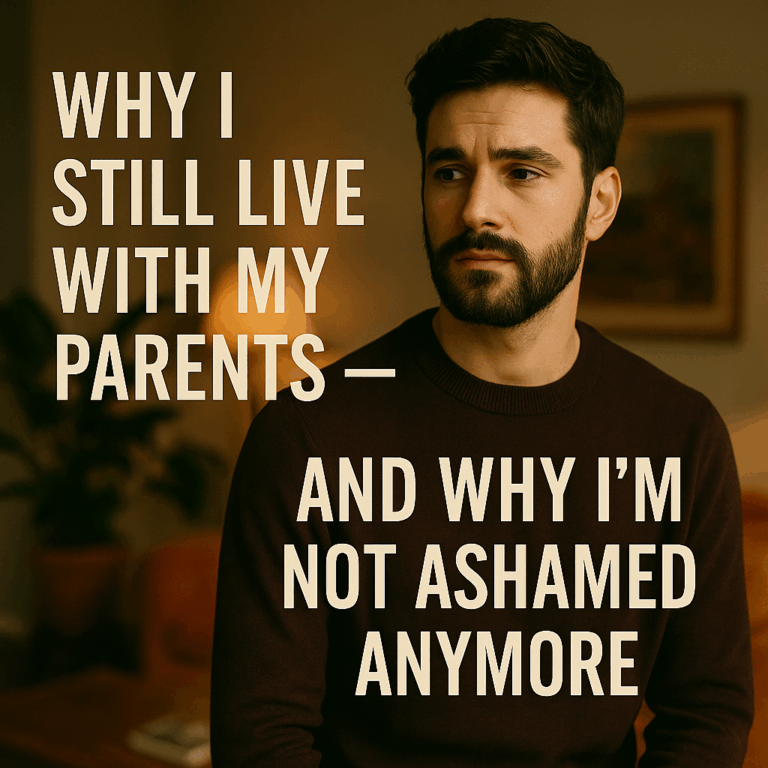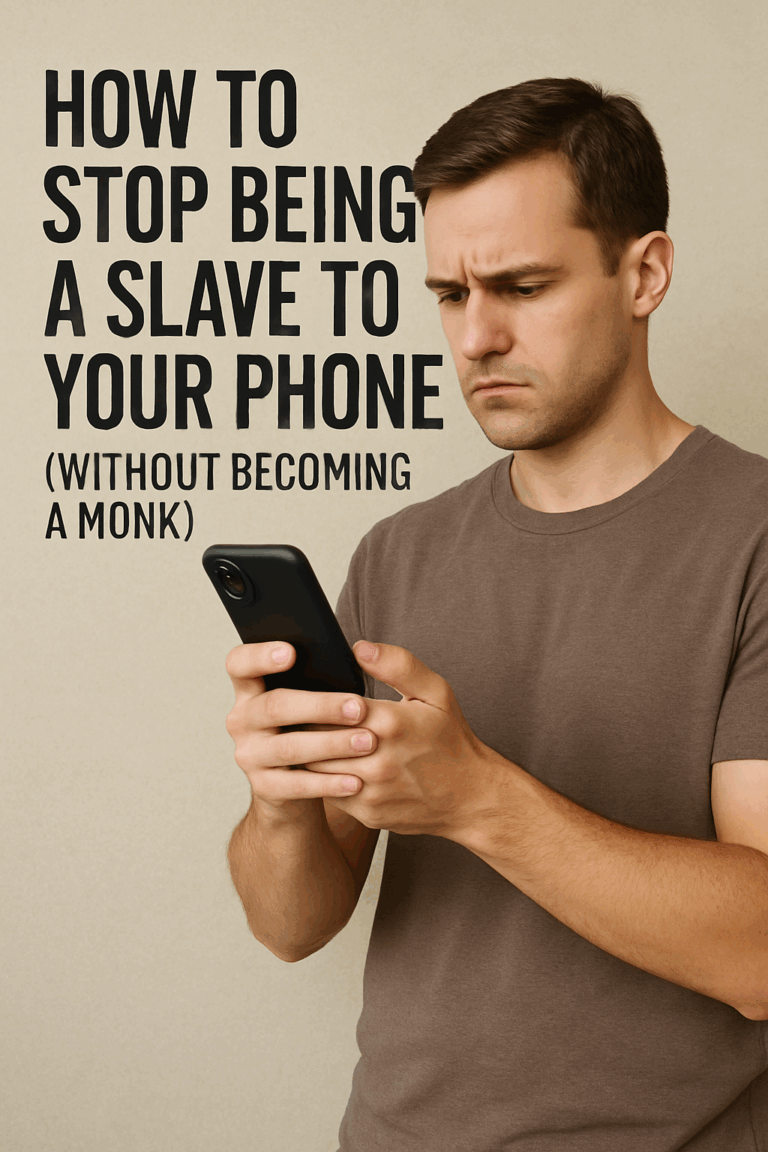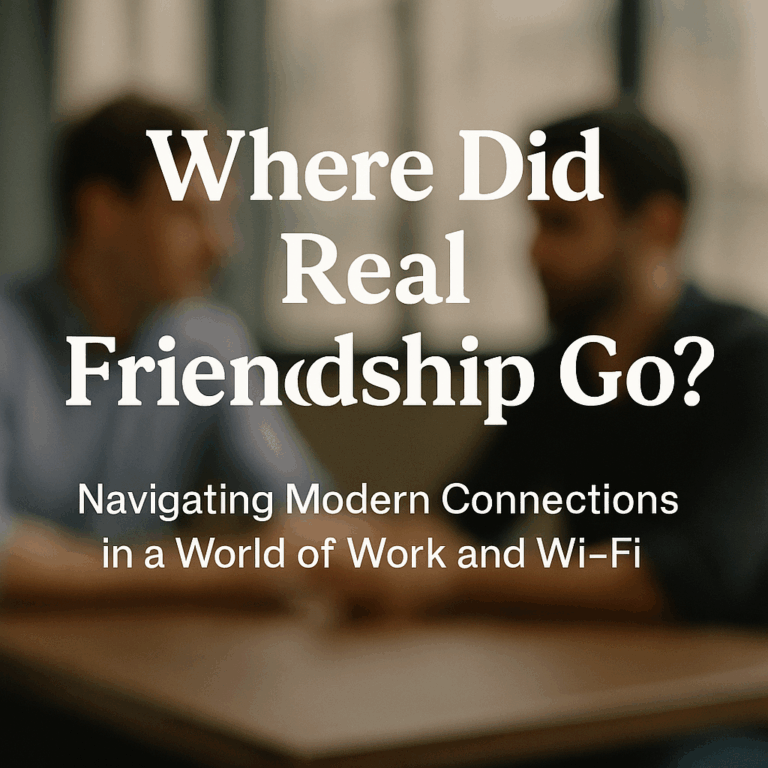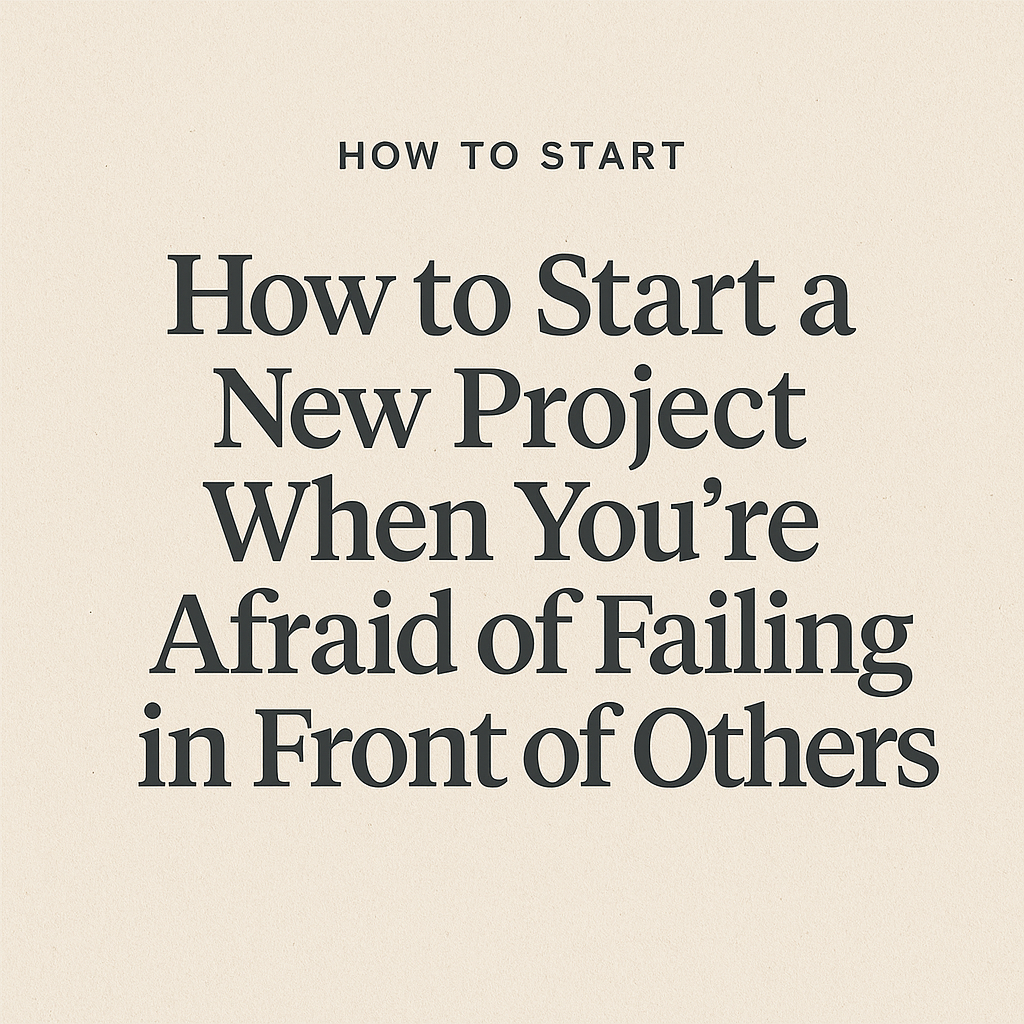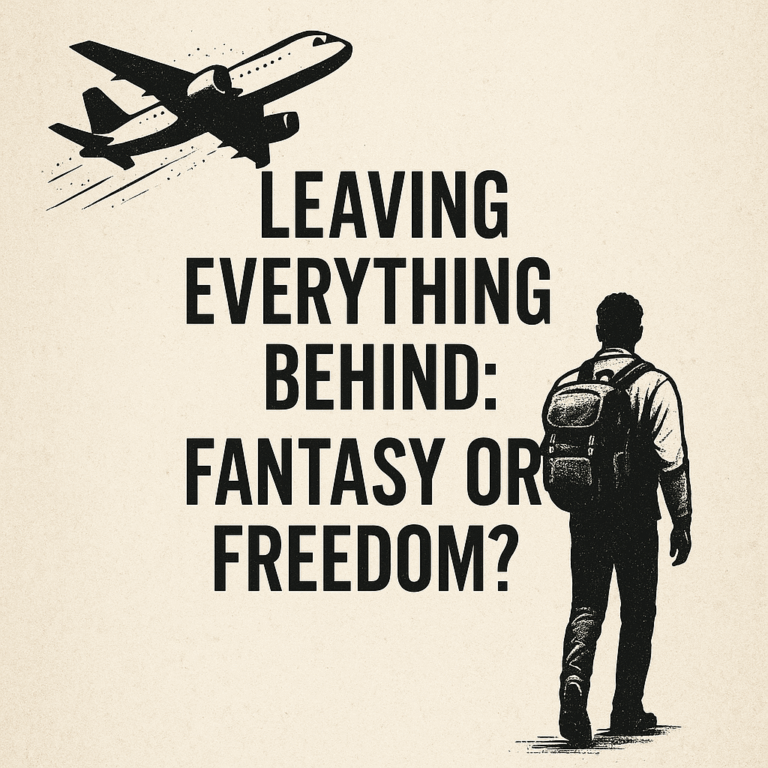The Curse of Constant Productivity
The Anxiety of “Always Busy”: Why We Don’t Know How to Stop Anymore
We live in a culture that praises productivity like a religion. If you’re not constantly working, studying, building something, or planning your next move, you’re falling behind — or at least, that’s the story we’re told. And in the midst of all this noise, we’ve forgotten something essential: how to simply stop. How to do nothing. How to rest without guilt.
This article is not a productivity hack. It’s not a 5-step plan to optimize your breaks. It’s an honest conversation — about pressure, fear, value, and why the idea of rest feels like failure for so many men in the modern world.
1. The Pressure to Always Be Producing
From a young age, we’re told that our worth is tied to what we do. Grades. Sports. Work. Side hustles. Status. You learn early that achievement equals approval. And when you’re not producing, it feels like you’re disappearing.
In a world that never shuts up, silence becomes uncomfortable. Stillness feels wrong. A quiet afternoon with no notifications, no meetings, no plans — it doesn’t feel like peace. It feels like laziness.
We’re taught to chase. To move. To always be a step ahead. But the truth? Most of us are exhausted. And that exhaustion is hidden behind a fake smile, a full calendar, and a to-do list that never ends.
2. The Fear of Not Doing Enough
Here’s the quiet voice in the back of your head:
- “You could be learning a new skill right now.”
- “You should be networking instead of relaxing.”
- “Everyone else is doing more than you.”
This voice doesn’t care about your limits. It doesn’t respect your body. It doesn’t know that you’ve already been pushing yourself all week. It just whispers: “Not enough. Not yet.”
So, we keep going. Not out of ambition — but out of fear. Fear of being left behind. Fear of being seen as lazy. Fear of looking weak, especially as a man, where we’re expected to be stable, driven, and “in control” 24/7.
But beneath that fear is something deeper: a fragile sense of identity built on output. If I stop producing, who am I?
3. How This Affects Mental Health and Self-Worth
When your entire self-worth is built on being productive, rest becomes dangerous. Because rest threatens that fragile foundation. And over time, that pressure turns into anxiety — a specific kind of anxiety we rarely talk about: the anxiety of being idle.
You try to sit on the couch and watch a movie, and your mind drifts to emails. You take a weekend off, but can’t stop checking your phone. You finally go on vacation, but feel tense because you’re “wasting time.”
This is more than stress. It’s a disconnection from your own inner rhythm. You don’t trust yourself to just be. You don’t know who you are without a deadline.
That’s where burnout starts — not just physical fatigue, but emotional erosion. The slow and steady loss of joy, clarity, and presence. And the cruel part? Society celebrates it. “Look how dedicated he is. Look how much he gets done.”
4. Why We Feel Guilty When We Rest
Here’s the hard truth: we feel guilty for resting because we’ve been taught that rest is only a reward — not a right. You earn it. You justify it. You prove it.
It’s no coincidence that when you take a break, you immediately think, “Did I do enough to deserve this?” That question reveals how deeply our culture has programmed us to link rest with guilt.
Think about it. How many times have you laid in bed, completely exhausted, and still opened your laptop “just to check one more thing”? How many weekends did you promise yourself rest but ended up organizing, planning, preparing — just to feel in control?
This guilt isn’t natural. It’s cultural. We’ve been sold the lie that hustle equals success, and that slowing down is dangerous. But the truth is: without stillness, we lose the ability to hear ourselves. We burn through life without ever asking why we’re running.
5. What Are We Afraid Of, Really?
Stopping forces us to feel. And sometimes what we feel isn’t pretty. Emptiness. Self-doubt. The fear that maybe we’re not doing life “right.” That maybe we’ve built so much around goals, tasks, and outcomes that we don’t know how to just exist without them.
That’s why rest feels threatening — not because it’s lazy, but because it’s honest. It strips away the noise and makes space for what we’ve been avoiding: our own truth.
And yet, this is exactly where healing begins. Not in the grind, but in the pause. Not in the doing, but in the being.
6. The Hidden Cost of Constant Movement
We pay for this “always busy” lifestyle in ways we don’t see right away:
- We lose presence in conversations because our minds are on the next task.
- We become irritable, impatient, and numb.
- We forget what joy feels like without achievement attached.
- We wake up tired — not from lack of sleep, but from carrying the pressure of “not enough.”
This isn’t life. This is survival dressed up in ambition. And it’s stealing our clarity, our masculinity, and our peace.
7. Learning to Stop Without Shame
So how do we reclaim our right to rest — not as a reward, but as a practice?
It starts with small acts of rebellion:
- Take a full lunch break without checking your phone.
- Sit in silence for 10 minutes, without trying to “meditate perfectly.”
- Say no to one extra task, just because you can.
- Go for a walk without headphones, without purpose — just walk.
These moments might feel unproductive. That’s the point. Let them be. They’re not “wasted.” They’re human. They’re yours.
Over time, you begin to remember something that hustle culture made you forget: you are more than your output. You have value beyond what you produce. Your rest matters because you matter.
8. Final Reflection
If you’re reading this and feeling exhausted, guilty, or stuck in a cycle of “always busy,” know this: you’re not alone. So many men feel this tension. The pressure to perform. The fear of slowing down. The guilt of doing nothing.
But maybe doing nothing isn’t failure. Maybe it’s freedom. Maybe it’s the beginning of coming home to yourself — not the version of you that hustles, plans, and checks boxes, but the version that breathes, feels, and exists fully.
Rest is not weakness. Stillness is not failure. Slowing down doesn’t mean giving up — it means coming back. To clarity. To wholeness. To life.
You are not a machine. You are a man. And you are allowed to stop.

